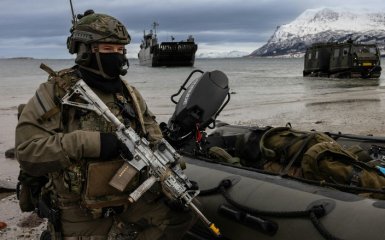NATO has confidentially and without public communication recognized at least two "red lines" for the intervention of its troops in the Russian Federation's war against Ukraine.
What conditions will push NATO to enter into Russia's war against Ukraine?
The Italian publication La Repubblica writes that there are no operational plans that involve sending troops, only assessments of possible contingency plans.
The first "red line" involves a third country's direct or indirect participation in Russia's war against Ukraine, for example, in the event of a possible breakthrough in northwestern Ukraine.
The publication writes, "This would create a corridor between Ukraine and Belarus."
Then Minsk would be directly involved in the war. His troops and arsenal would be crucial for Moscow. And this circumstance could only intensify the defense in favor of Ukraine.
According to La Repubblica, the second "red line" concerns a military provocation against the Baltic states, Poland, or a targeted attack on Moldova.
This is not necessarily an invasion, but simply a military strike to test the reaction of the West in the phase of "possible confusion", that is, during the elections for the European Parliament and the US President.
Macron named the condition for troops’ deployment to Ukraine
The President of France continues to hold back on his words about the possibility of the entry of allied troops into Ukraine.
Like I said, I'm not ruling anything out because we're dealing with someone who doesn't rule anything out. Undoubtedly, we have shown excessive indecision in defining the limits of our reaction to those who no longer have "red lines" and who are the aggressors.
Macron said that if the Russians had broken through the front and there had been a request from Ukraine — which is not the case now — France would legitimately ask itself such a question.
So I think that to rule out such a scenario would mean that we have not learned the lessons of the last two years," Macron said.




